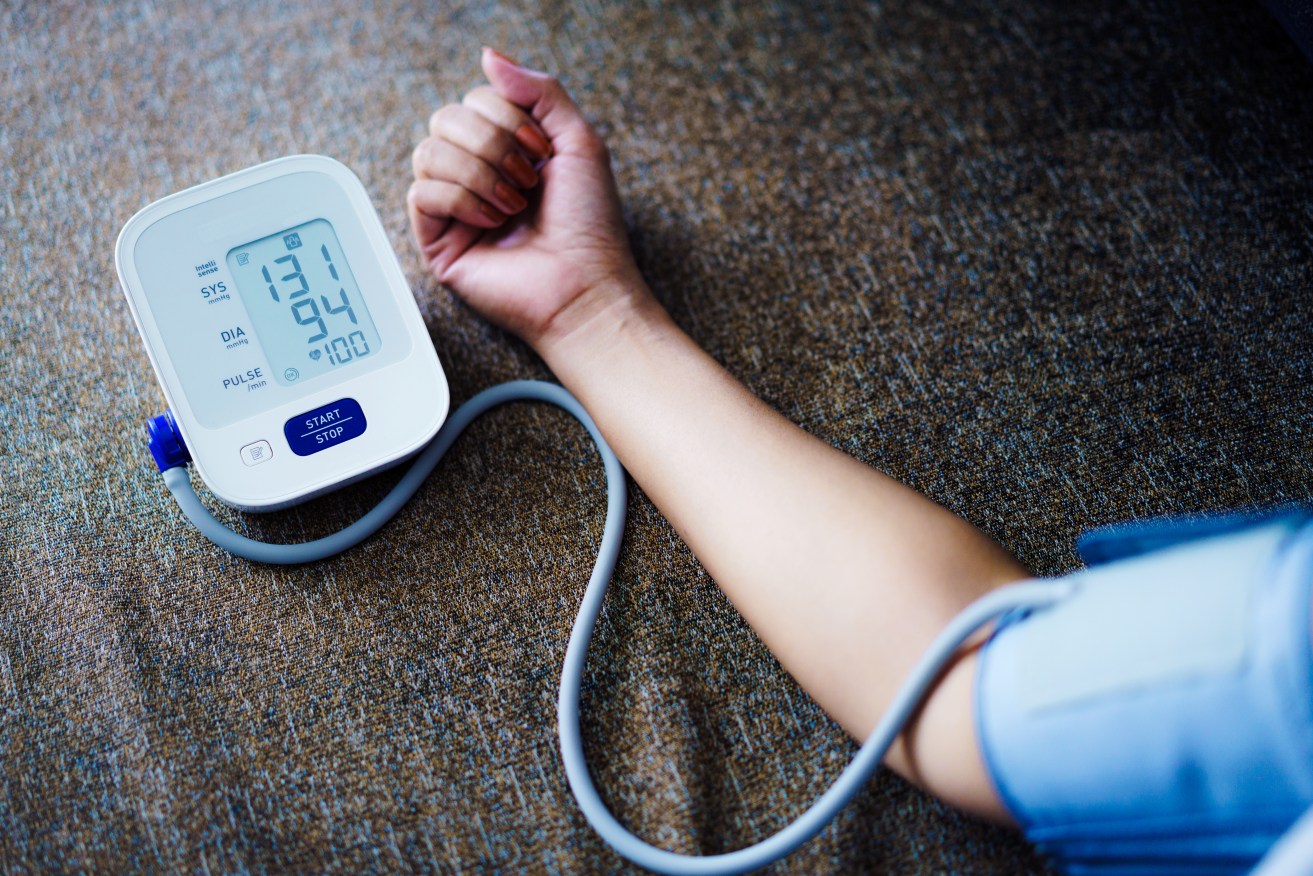The most important thing you must do to cut your risk of dementia


Too high! To cut dementia risk, you need to get your blood pressure into the healthy range, which is under 120/808 mmHg. Photo: Getty
We run as many news stories about dementia as we can, and for good reason.
As we wrote in February, the impact of dementia in Australia has more than doubled in the past 12 years. That was according to the Australian Institute of Health and Welfare (AIHW).
Dementia has overtaken coronary heart disease as the leading cause of disease burden among Australians aged 65 and over, the AIHW said in an update to its 2022 report. Read more here.
In May we reported that nipping type 2 diabetes in the bud means you’re less likely to develop dementia.
Blood sugar spikes in people with type 2 diabetes ruthlessly promotes inflammation in the brain, profoundly upping your risk of dementia. See here.
Last month, we reported on the curious and positive relationship between exposure to aromatherapy at night, the quality of your dreams and the boost this provides to the cognitive performance of older people. See here.
The one thing to do
If there’s one thing you must do to cut your dementia risk, it’s bringing your blood pressure into the healthy range. This means getting your blood pressure below 120/80 mmHg.
Many people can achieve this through a commitment to exercise and healthier diet.
But many older people, and not so older, might struggle to achieve this with lifestyle changes. And many won’t even try.
So the burden is put on medications.
Even then, you might be asking yourself: If my blood pressure has been high, isn’t the damage done? Will medication really make a difference to preventing dementia?
Yes, it will
In fact, not only will managing blood pressure limit dementia risk in healthy brains… get this!
Some studies have found that certain medications – notably potassium-sparing diuretics – will cut the dementia risk in people with Mild Cognitive Impairment.
This is where the brain is already carrying damage, and is at severe risk of developing full-blown dementia.
Diuretics work to eliminate excess water and sodium from the body, and this in turn lowers blood pressure.
Potassium-sparing diuretics are a type of diuretic that retains potassium at the same time.
Please discuss with your doctor.
Getting real about hypertension
The authors of a new Australian study report that hypertension, or high blood pressure, “is the most prevalent risk factor for dementia, affecting more than one billion people worldwide”.
The authors note that midlife hypertension is associated with an about 60 per cent increased risk of all-cause dementia, and an about 25 per cent increased risk of Alzheimer dementia.
This study – from the University of New South Wales, La Trobe University, George Institute for Global Health and the Australian National University – was a meta-analysis including individual participant data from 34,000 older adults in 17 studies.
They found overall, untreated high blood pressure was associated with a higher risk of dementia than treated high blood pressure.
Those who treated their high blood pressure had no greater risk of dementia than those with healthy blood pressure.
This means that once you bring your wayward blood sugar under control, you carry the same dementia risk as healthy people.
How soon should we start protecting our brains?
We explored this issue in a piece we published in October.
We reported the following:
- High blood pressure is hard on the brain. It causes strokes that can kill you or leave you demented
- It can cause mini-strokes that might not kill you but will bring on rapid cognitive decline.
Then there’s subcortical vascular dementia in which the small blood vessels deep within the brain are damaged.
More young people at risk
Last year, an international study found that people with high blood pressure diagnosed before the age of 55 had smaller brains compared to people who had normal blood pressure.
They were also more at risk of developing dementia.
This wasn’t surprising: An association between hypertension in mid-life and dementia in later life is well documented – and research into dementia risk has largely focused on people aged over 40.
But the researchers were keen to see how hypertension affected the brains of younger people. For good reason: High blood pressure is becoming more common in young adults.
The researchers reported that people diagnosed with high blood pressure between ages 35 and 44 were 61 per cent more likely to develop dementia during the study’s follow-up period eight to 10 years later, compared to individuals who had normal blood pressure during the same years.
They also found that people diagnosed with hypertension before the age of 35 had the greatest amount of brain shrinkage.
Bottom line: No matter how old you are, seek help and get your blood pressure under control.








